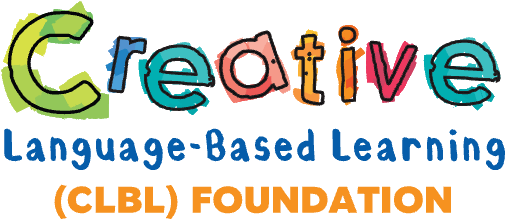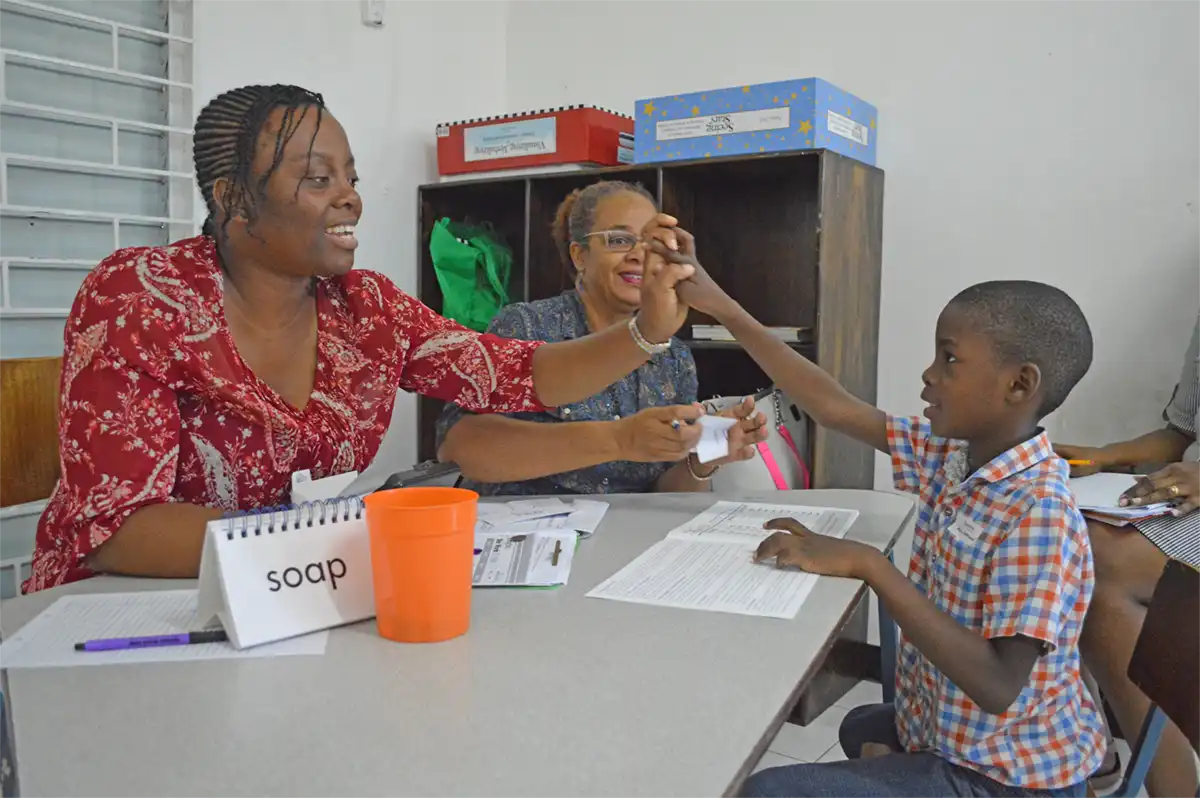☰
Approach
The CLBL Foundation’s Literacy and Numeracy Teacher Training Programme is a comprehensive initiative to transform literacy and numeracy education across Jamaica by equipping in-service and pre-service teachers with research-based instructional strategies. Since its inception in 2017, the programme has demonstrated significant positive effects on student achievement.
As of April 2025, CLBL includes 1 Master Teacher, 34 Instructional Mentors, and 344 participating teachers across 146 schools in all 14 parishes, reaching more than 5,000 students annually.
Lindamood-Bell® Learning Processes
The CLBL Foundation’s Literacy and Numeracy Teacher Training Programme is a comprehensive initiative to transform literacy and numeracy education across Jamaica by equipping in-service and pre-service teachers with research-based instructional strategies. Since its inception in 2017, the programme has demonstrated significant positive effects on student achievement.
As of April 2025, CLBL includes 1 Master Teacher, 34 Instructional Mentors, and 344 participating teachers across 146 schools in all 14 parishes, reaching more than 5,000 students annually.
For over 30 years, the research-validated Lindamood-Bell® Learning Processes programmes have been proven to improve the lives of students with dyslexia and other language-based difficulties. These programmes develop the component parts of learning and change the way the brain itself processes information, rather than trying to teach students compensatory strategies to access content. Compensatory efforts have all too often kept a student locked in an endless cycle of remediation, struggling to keep up and falling further behind.
If the brain can change, the behaviour can change. Following many discussions with teachers and others involved in education, the need for a more systematic approach to training early childhood and special needs teachers in Jamaican schools emerged and a stated desire from the teachers to continue to learn the process-based instructional model of Lindamood-Bell®
Seeing Stars® and Visualizing and Verbalizing®
Seeing Stars® and Visualizing and Verbalizing® are based on a theory of cognition known as Dual Coding Theory developed by Allan Paivio. Mark Sadoski said, “Dual coding theory is an embodied theory of mind in which all cognition consists of the independent activity of, or interplay between, two great mental codes: a verbal code specialised for language and a nonverbal code specialised for knowledge of the world in the form of mental images derived from experience.”
Students also learn to develop both numeral and concept imagery for numbers and number operations through the On Cloud Nine® programme, integrating imagery with language to improve computation and problem solving. As a result, children have increased knowledge of math facts, an awareness of mathematical concepts, an understanding of word problems and improved test scores.
“Lindamood-Bell® is extremely appreciative of the opportunity to work with students and teachers of Jamaica. We believe improved literacy instruction is critical to providing these students the best opportunity for success in school and in life. We look forward to future collaborations in serving the students and teachers of Jamaica.”
– Dave Kiyvyra
Director of Development, Lindamood-Bell for Schools
Phases of the Programme
Phase 1
Teacher Interview & Selection Process
Phase 2
Workshops with Lindamood-Bell®
Phase 3
Year-Round Instructional Mentorship Development through Job-Embedded Coaching
Phase 4
Summer Learning Session Pods
Phase
Teacher Interview and Selection Process
A qualified group of panellists interview and select interested early childhood and special needs educators from schools across the island to participate in the Lindamood-Bell® workshops.
Phase
Workshops with Lindamood-Bell®
Teachers learn Lindamood-Bell® methodologies through a combination of Workshops and supervised practice. They are guided through concepts and processes for applying these techniques in one-on-one, small-group, and classroom settings, learning how the methodology can be easily integrated into any curriculum.
Upon completing each workshop, teachers receive materials for their schools, which support sustainable program implementation and facilitate the sharing of methodologies with colleagues.
Early Childhood Educators are trained in:
- Sensory-Cognitive Foundations for Early Literacy, Oral Language Development and Basic Mathematical Concepts, as related to students aged 4 to 6.
Primary, Secondary & Special Ed Teachers are trained in the literacy and numeracy programmes, namely:
- Seeing Stars®, Talkies, and Visualizing & Verbalizing® develop the imagery-language foundation that underlies reading, spelling, comprehension, and critical thinking.
- On Cloud Nine® for Mathematics stimulates the ability to image and verbalise the concepts underlying mathematical processes.
- Test Administration Orientation provides all teachers with instruction on administering formal and informal Needs Assessments.
Phase
Year-Round Instructional Mentorship Development through Job-Embedded Coaching
On completion of the workshops, teachers are immersed in biweekly Year-Round Job-Embedded Professional Development through school-based instruction delivered by trained CLBL Foundation Coaches and Local Instructional Mentors. This Job-Embedded Coaching takes participating teachers through the Four Stages of Development to become Local Instructional Mentors.
Local Instructional Mentors must demonstrate the following competencies at each stage of the program:
- Instructor Stage: Expertise in the Seeing Stars®, Visualizing & Verbalizing®, and On Cloud Nine® programs, along with competencies and skills associated with differentiated instruction.
- Diagnostician Stage: Effective use of formative, summative, and in-class data to build student learning profiles, measure progress, and adjust instruction accordingly.
- Pacer Stage: Ability to construct targeted, effective lesson plans based on real-time probing and diagnosis, using the Seeing Stars®, Visualizing & Verbalizing®, and On Cloud Nine® programs. This strengthens the teachers' underlying processing and pacing skills when delivering curriculum.
- Mentor Stage: Competency in facilitating and assisting colleagues by developing expertise in Lindamood-Bell® programs, building skills associated with differentiated instruction through mentoring, coaching, and establishing Professional Learning Communities (PLCs).
Phase
Summer Learning Session
Teachers across the island participate in the Summer Learning Session module in July, further solidifying their knowledge of the programme steps and language through exposure to the gamut of the programme and engagement with students with various learning needs. This additional training enables them to provide more focused and effective remedial instruction for their students, helping them prepare for the upcoming school year.
Target Group
As the programme expands, the main target for direct intervention includes educators from 272 underperforming primary and secondary schools across urban and rural Jamaica. These schools, identified by the Ministry of Education Youth, Skills and Information (MoESYI), face challenges such as ongoing violence, limited community support, low attendance, and high attrition rates. The ultimate beneficiaries of this initiative are the children struggling to achieve literacy and numeracy benchmarks.

